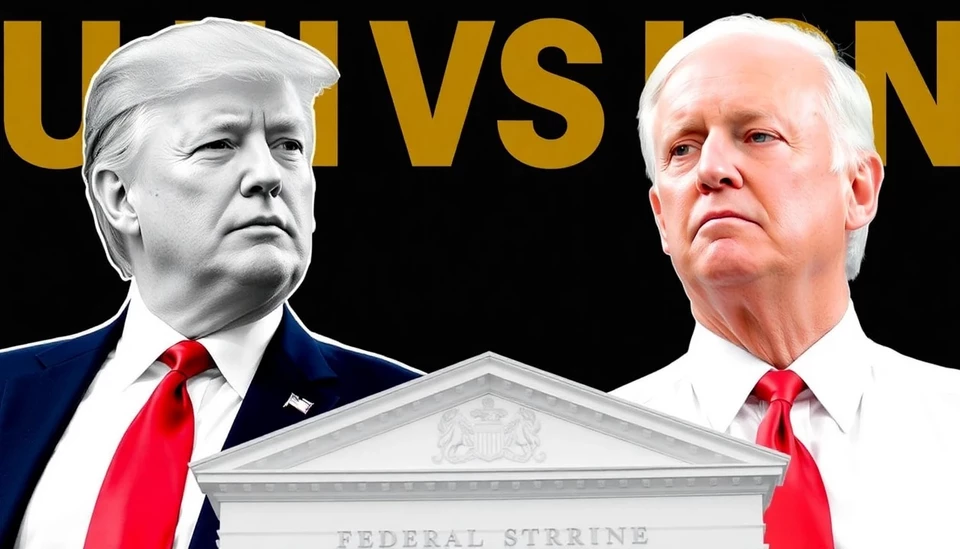
As tensions rise in the political arena, former President Donald Trump has reignited discussions concerning the independence of the Federal Reserve, particularly regarding his ability to influence the central bank's leadership. Given the economic challenges facing the nation, the implications of such a power struggle could send ripples through the financial markets and impact monetary policy for years to come.
The conversation has evolved significantly since Trump left office; it has not only become a commentary on his relationship with Jerome Powell, the Fed Chair, but also how a president's appointment can affect operational independence. Trump, known for his outspoken views on economic policy, once expressed dissatisfaction with Powell, believing that the Fed was not adequately responsive to his administration's goals of fostering growth through aggressive monetary easing.
Now, with Trump contemplating a political comeback in the next presidential election, the question arises: If elected, does he have the capacity to fire Powell? While the Federal Reserve operates with a degree of autonomy, the President indeed holds the authority to appoint or dismiss members of the Federal Reserve Board, including the chair. The real issue, however, lies in the potential fallout from such an act.
Experts warn that sidelining Powell could undermine the Fed's credibility and independence, essential attributes for maintaining market confidence. Central banks are traditionally seen as apolitical institutions, making decisions based on economic indicators rather than political pressures. If Trump were to act on his desire to reshape the leadership of the Fed, it could lead to instability in financial markets and challenge long-held views on the significance of an independent monetary policy.
The Fed's independence has been a cornerstone of its operational framework since its establishment. Its mission revolves around managing inflation, maximizing employment, and moderating long-term interest rates without the influence of political agendas. Trump’s previous attempts to sway Powell's decisions raised eyebrows and fostered discussion about the potential risks associated with politicizing economic policies
In the current climate of inflation and interest rate hikes, Trump’s considerations resonate with many who believe a more aggressive monetary policy might be beneficial for the economy. However, the broader concern remains: can economic recovery be sustained if the Fed is perceived as merely an extension of political will?
The backdrop of this debate is particularly relevant in today’s financial landscape, characterized by uncertainties ranging from geopolitical tensions to domestic economic fluctuations. As the nation watches this political narrative unfold, investors and economists alike are left pondering the potential consequences for both the economy and the fundamental principles of fiscal governance.
In summary, the prospect of Trump attempting to manipulate the Fed's leadership raises pertinent questions regarding the balance of power in U.S. economic policy. As we advance toward the upcoming elections, the movements in this sphere will be closely monitored, with implications for both policy-making and broader economic stability hanging in the balance.
While Trump’s ambitions may converge with the prevailing economic challenges, the question remains: Is jeopardizing the Federal Reserve's independence worth the potential benefits? This ongoing saga promises to have significant ramifications in the financial world, making it essential for stakeholders to stay informed and engaged with this developing story.
#Trump #FederalReserve #JeromePowell #Economics #MonetaryPolicy #PoliticalIndependence #Finance #MarketImpact #2024Elections
Author: Laura Mitchell




